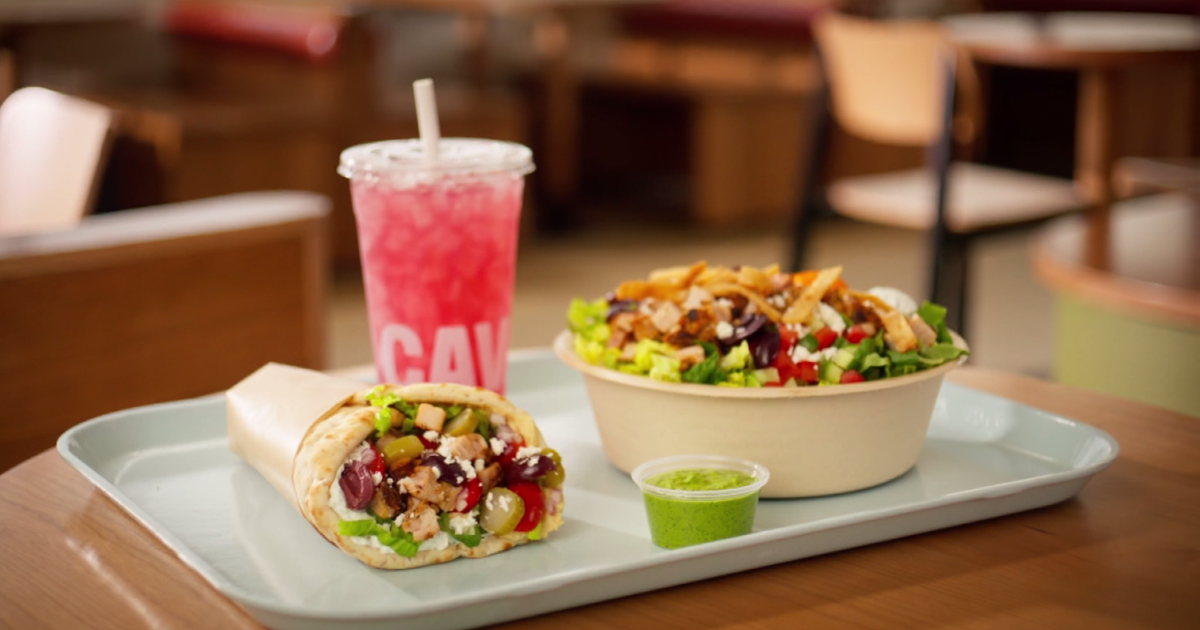Businesses Target 'Guerrilla' Food Trucks
CHICAGO (CBS) -- Even before Chicago decides whether to legalize mobile food trucks with cooking on the premises, downtown businesses are struggling with another intrusion on wheels: "guerrilla marketers" and food trucks that set up shop in no-parking zones and sell pre-packaged goods.
John Chikow, president and CEO of the Greater North Michigan Avenue Association, said the Magnificent Mile has been overrun by mobile businesses illegally hawking their wares, creating traffic jams and endangering pedestrians.
"They're not pulling into a legal spot, paying the meter and doing their thing. Their strategy is to park in no-parking zones, cab stands and adjacent to crosswalks and either display their products or attempt to sell. We have a major problem with traffic flow and pedestrian safety," Chikow said.
One of the biggest offenders is Flirty Cupcake, which advises its customers when and where its truck is going to be on Facebook and the company's website.
Chikow also has pictures of an illegally-parked vehicle distributing samples of Muscle Milk and another marketing Clear.com, which bills itself as a "super-fast mobile internet service."
The problem has gotten so bad that the Greater North Michigan Avenue Association has distributed a form letter to his members urging them to "call 911 to report such activity."
"I looked out the window recently and saw a Muscle Milk vehicle that had pulled right into the crosswalk near the Women's Athletic Club [626 N. Michigan Ave.] Cabbies were stopping in the middle of the street trying to get a free milk. You've got cars and buses trying to turn south on Michigan Avenue," Chikow said.
"These guerrilla marketing tactics are putting the public at risk and taking advantage of the population we have here in a very unsafe way."
Mobile food trucks are currently permitted in Chicago, but they can only sell pre-packaged foods. They must also be legally parked.
A movement has been afoot for some time to bring gourmet food trucks with cooking on the premises to Chicago. They are popular in many cities across the country, from New York and Los Angeles to Minneapolis and Austin, Texas.
But in Chicago, there are numerous restrictions that all but prohibit them. In addition to the rules forbidding cooking onsite and the restrictions on parking, there are also rules that forbid trucks from staying in one place for more than two hours, or selling anything after 10 p.m., a Chicago Reader article explained last year.
An ordinance was introduced in July of last year that would ease the regulations on food trucks.
It was written in part by Matt Maroni, the owner of the Gaztro-Wagon mobile food truck and eatery in the Edgewater neighborhood. Since last spring, Maroni has been leading the movement to allow greater freedom for food truck operators.
"For years the 'taco truck' has been depicted as a dirty, unsanitary vessel serving food from questionable origins," Maroni's advocacy Web site says. "Today, this new mobile food truck movement has completely changed the consumers' opinion by increasing the quality standards of the food, service and sanitation offered by these trucks."
Ald. Scott Waguespack (32nd) backed the ordinance, which has yet to come up for a vote.
But the ordinance has met with some stiff resistance. The Chicago Sun-Times has reported that restaurant owners have been mobilizing to try and block City Hall from legalizing the food trucks and creating an "unlevel playing field" for their brick-and-mortar businesses.
Illinois Restaurant Association President Sheila O'Grady even went so far as to suggest a possible compromise: confining rolling restaurants to "food deserts" and neighborhoods with a shortage of brick-and-mortar restaurants.
Given the problem that already exists with guerrilla marketers and food trucks selling pre-packaged products, Chikow said he's not about to endorse the idea of mobile food trucks with cooking on the premises. It would only make an already unsafe situation worse, he said.
"There's no one in favor of this right now," he said. We've got people who have invested in facilities. They pay taxes. They hire employees and buy ads. They're doing all this stuff and somebody comes in who doesn't do all this stuff and they're competing in the marketplace."
--The Chicago Sun-Times contributed to this report, via the Sun-Times Media Wire



